Can Accusers Drop Domestic Violence Charges If They Change Their Mind?
Domestic violence cases are emotionally intense and can lead to some scary situations. By their very nature, domestic violence incidents often leave victims feeling a lack of agency and control over their safety and decisions. Sometimes, circumstances lead victims to believe that they might be better off if criminal charges weren’t filed against their abusers – for a variety of reasons. It’s important that victims know their rights and what resources are available to recover from domestic violence and abuse. If you have been victimized by an abuser, seek out a victims’ rights advocate or agency to get the help you need to recover and restore your safety and well-being. Mental health professionals and other advocates can help you make sure that you’re making decisions that are in your own best interest. But what if you determine that your best interest is not necessarily a criminal prosecution?
Domestic Violence: Civil Suits vs. Criminal Charges
Can an accuser decide to drop the charges against their alleged abuser? The answer to that question lies in the nature of domestic violence cases. If you have filed a civil lawsuit to recover monetary damages caused by the alleged abuse, such as medical expenses, lost wages, and other results of the alleged abuse, you control whether the case continues or not. Your attorney can help you navigate the court system as you seek relief – or to discontinue a civil lawsuit if you decide that’s the best decision for you and your family. Civil lawsuits include one party accusing another of injury or damages – meaning the accuser is the one who initiates the court case.
If someone calls the police to allege an incident of domestic violence or abuse and the police take a person into custody, however, the case is almost entirely in the hands of the local prosecutor. Because domestic violence and abuse are criminal offenses, the court case is initiated and the charges are issued by the State and can only be pursued or recalled by a prosecuting attorney. In these cases, accusers have no say in whether or not a domestic violence or abuse charge is issued, nor do they control if a person is ultimately charged, tried, and/or convicted of the crime. The only person who can drop domestic violence or abuse charges in the criminal court system is the prosecuting attorney. While this decision may or may not be influenced by an accuser, the process is largely beyond the control of an accuser or alleged victim of domestic violence or abuse.
Recanting Statements and Participating in the Case
While an accuser does not control whether or not someone is charged with domestic violence or abuse, he or she can recant any statements they may have made to police or a court. Accusers should consider how recanting statements may affect them – if the accuser has made a false statement to police or the court, he or she could face fines, penalties, or charges of perjury. Before an accuser decides to recant a previous statement, he or she should consult an attorney so that the options and potential consequences are clear.
When an accuser recants a statement, it doesn’t mean that the case stops in its tracks. Prosecutors could still pursue the case based on other evidence, including statements from police officers who may have responded to a call, photographs of injuries sustained during the alleged abuse, and other witness statements. The accuser could also still be called to testify during a trial or compelled to produce documents or other evidence by the court.
In some cases, if the accuser is the alleged victim of domestic violence or abuse, the judge may consider that person’s opinion or needs at several stages of the case. The judge may, for instance, issue orders of protection during the case at the request of the accuser. The judge may also consider the alleged victim’s opinion when deciding whether to hold or release the alleged abuser.
Trust the Legal Experts for Your Family Law Needs
Domestic violence and abuse cases can be overwhelming – especially emotionally. Trust the experts at the Bobby Digby Law Firm to protect your best interests, guide you through the process, and stand beside you in the Court of Law. Contact us today for a consultation!

